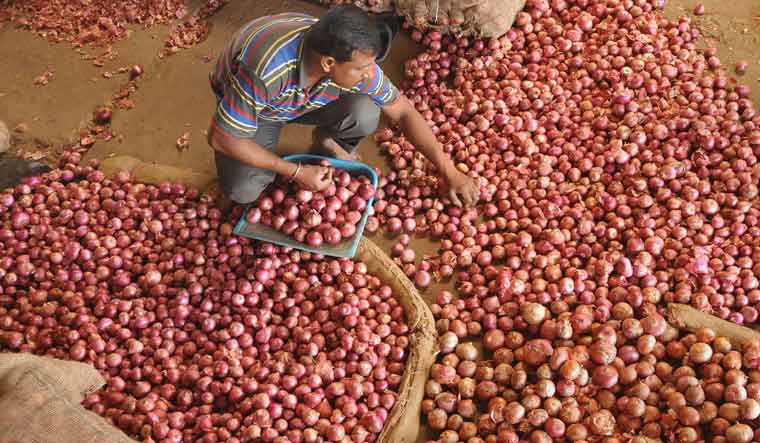The ban on export of all varieties of onions by the Government of India on Sunday will wipe off the tears from the eyes of people across the country, paying anything between Rs 80 to Rs 120 a kilo in the retail market.
It remains to be seen if and when the retail price will return to Rs 20 per kg—which has been generally the price the past few months before it surged in one go.
But coming as this ban does, more than a week too late, it seems safe to conclude that the ruling Bharatiya Janata Party has also helped wipe the tears off their workers and leaders, campaigning in poll-bound states, particularly Maharashtra. For onions and elections have, almost historically, had a loves-me-loves-me-not kind of tenuous relationship.
While nobody has kept track of low onion prices resulting in huge margins for any ruling dispensation, high prices and subsequent lowering of them, or even steps to lower them, have paid off. And the ruling party is doomed whether it takes action, or it sits indifferent to the price of onions.
The current spiraling of the tear-jerker essential ingredient in homes across the country has been attributing to the heavy rains and flooding in Maharashtra, the state that produces most of the onions that Indians consume. This is not the first time that it is so—remember then prime minister Dr Manmohan Singh shedding tears over onion prices in 2010?
Across north India, a roti with a side of salt and a few slices of onion is the regular meal in the homes of the poor.
A few months after Prime Minister Narendra Modi assumed office, his government and party also came under pressure from the Congress as well as the NCP in Maharashtra, for bringing onions under the Essetial Commodities Act, and delinking it from the Agriculture Produce Market Committee as onion prices spiraled in the state that was home to the crop, and that too as elections were in the offing. NCP supremo, and an onion grower himself, Sharad Pawar called the move anti-farmer. They charged the Modi government with attacking the Congress-NCP state government for the price rise, pretending to control prices even as they were taking anti-farmer steps.
There have also been, in the past, allegations of traders belonging to rival parties hoarding onions, creating an artificial scarcity and pushing up the prices. These have generally been followed by raids in go-downs and sharp tracking of their movement, not only in the mandis, but across the borders too.



